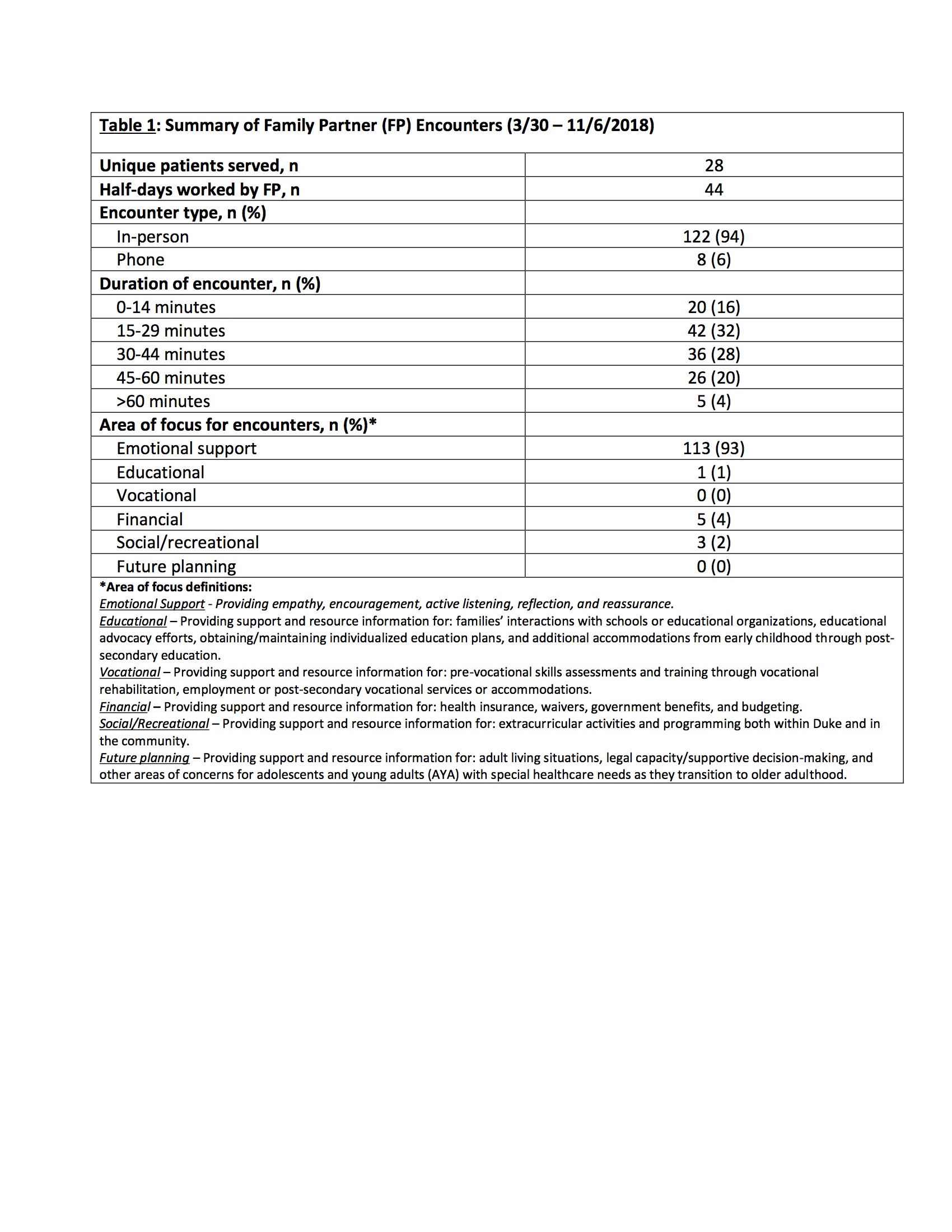Background: Family Partners (FP) are peer mentors trained to support parents facing clinical situations similar to what FPs previously experienced with their own children. FPs offer a family-centered, cost-effective intervention that can improve outcomes, particularly for children with prematurity or chronic diseases. Children with medical complexity (CMC) are a high need, high cost population with multiple complex conditions, severe functional limitations, medical technology dependence (e.g., feeding tube), and high healthcare costs. CMC usually require multi-specialty care at pediatric tertiary care centers, but often this care is fragmented and poorly coordinated. As a result, parents of CMC frequently must assume responsibility for coordination of their child’s care, which leads to parent/family stress, financial difficulties, and high hospital utilization. FPs could be a particularly useful resource to support parents of CMC, but FPs have not been previously adapted specifically for the CMC population.
Purpose: The purpose of this pilot study was to describe the development and implementation of an innovative complex care FP integrated within Duke Children’s Complex Care Service (CCS), a multi-disciplinary hospital-based medical home program that cares for a CMC population in the inpatient and outpatient settings.
Description: The purpose of the CCS FP was to provide enhanced support and information to parents of CMC hospitalized at Duke. The FP role was recently developed at Duke as a patient/family-centered team member who can serve as a bridge between outpatient pediatric clinicians and the patient/parent experience. We adapted the CCS FP pilot from these local experiences. One parent of a CMC who last received care from the Duke CCS program two years prior was hired and completed formal training in parent navigation and health coaching. The CCS FP received central supervision and support from four other FPs based in outpatient child psychiatry and pediatric primary care clinics at Duke; the CCS FP was the first inpatient-based FP at Duke. The CCS FP was available to meet with parents in the hospital two afternoons/week. We categorized CCS FP-parent encounters into core focus areas (Table 1). In six months (3/30 – 11/6/18), the CCS FP conducted 130 encounters with parents of 28 patients (average 4.6 encounters/patient). Most encounters were in-person (94%), focused on emotional support (93%), and lasted over 30 minutes per encounter (52%). Encounter details are described in Table 1.
Conclusions: Peer support by a FP for parents of hospitalized CMC integrated within a pediatric complex care program was feasible, and the CCS FP provided additional family-centered support via numerous direct encounters with parents. FPs have the potential to enhance family-centered care provided by pediatric complex care programs. Future steps will evaluate impact on clinical outcomes, parent-reported outcomes, and cost effectiveness.

